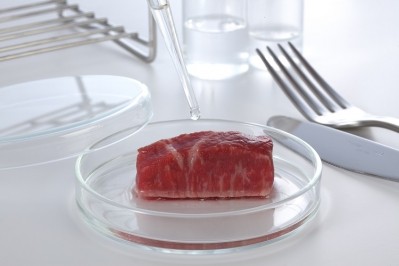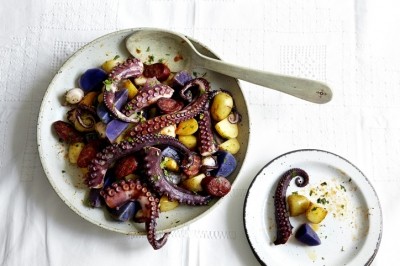Unnecessarily cruel or a necessary solution? The octopus farming debate rages
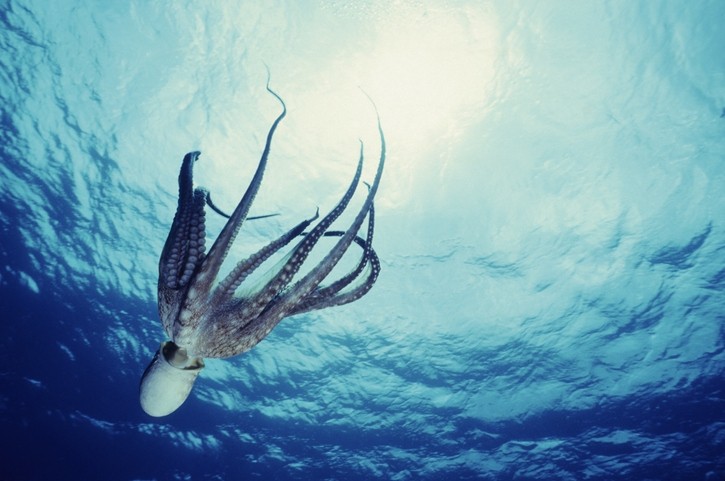
The welfare groups Compassion in World Farming and Eurogroup for Animals have raised new and ‘deep concerns’ about Nueva Pescanova’s plans to open an octopus farm in the Canary Islands.
The groups are calling for the farm to be scrapped after plans obtained for the development revealed the ‘animal cruelty and environmental consequences’ it would cause.
They are also calling on the EU not to use public funds to support octopus farming developments. “We’re calling on the EU to include a ban on octopus farming before it ever sees the light of day, in order to avoid plunging more sentient beings into a living hell,” said Eurogroup for Animals CEO Reineke Hameleers.
The plans – submitted to the General Directorate of Fishing of the Government of the Canary Islands by the Spanish company Nueva Pescanova and uncovered by Eurogroup for Animals – have raised a variety of issues. These include the use of what they describe as a cruel slaughter method, the confinement of octopuses in small barren tanks, and practices that contribute to the overexploitation of wild fish populations.
The campaigners’ concerns over the plans are outlined in a new report called ‘Uncovering the horrific reality of octopus farming’.
They also confirm the animal welfare campaigners’ fears that a number of extremely concerning practices would be implemented, including that octopuses would be:
- Slaughtered using cruel ice slurry: a highly aversive, inhumane method scientifically proven to cause considerable pain, fear and suffering as well as a prolonged death.
- Confined in crowded, barren underwater tanks that will result in poor welfare and risk aggression, territorialism and even cannibalism due to the octopuses’ naturally solitary nature.
- Exposed to round-the-clock unnatural light to increase reproduction, which will cause undue stress given the aversion these animals have to light.
- Fed with commercial feeds containing fishmeal and fish oil as main ingredients, which is unsustainable and contributes to the overfishing of wild populations.
- Raised within a land-based aquaculture system relating to higher risk of mass mortality due to the overcrowded conditions required for their profitability as well as negative environmental impacts stemming from the excessive use of energy.
Hameleers told FoodNavigator why the campaigners consider the plans so alarming. “Octopuses would suffer immensely due to their solitary and inquisitive nature and there is currently no approved humane slaughter method for octopuses,” she said. “What’s more, there is no legislation to protect their welfare in farms. Their carnivorous diet, and the energy requirements of continually pumping water through their tanks, makes farming them unsustainable and damaging to the environment. Instead of seeking new carnivorous species to exploit, we should be moving away from factory farming altogether.”
‘Extraordinary health and nutritional properties’
Nueva Pescanova first revealed its proposals to open an octopus farm in a harbour in Las Palmas in the Canary Islands back in 2021. The island’s authorities declared the 65-million-euro proposals “the largest private investment in history in that area”. That year Compassion in World Farming subsequently released a report, Octopus Factory Farming: A Recipe for Disaster, arguing that octopus farming is cruel and would cause environmental damage to our oceans. According to the report, experimental trials to farm octopuses suggest that the mortality rate in these systems would be around 20%, meaning that 1 in 5 individuals would not survive the entire production cycle.
The plans were also revealed as the world, much thanks to the 2020 Oscar-winning film 'My Octopus Teacher' – was gaining new insight into the complex intelligence of octopuses.
As reported by FoodNavigator back in 2021, proponents argue that octopus farming is a sustainable method of production that will reduce pressure on wild populations of octopus. Despite the 'My Octopus Teacher' effect, the creature has become an increasingly popular food in recent decades. As a result, wild octopus numbers are dwindling. In 2015, the number of octopuses caught around the world reached a high of 400,000 tonnes – 10 times more than in 1950.
Nueva Pescanova maintains there is a need for octopus aquaculture. A spokesperson told FoodNavigator that the latest concerns from Compassion in World Farming and Eurogroup for Animals are based on “inconcrete” sources that do “not represent the reality of the project”.
Animal welfare is a priority, it stressed. Based on studies of population densities carried out by the Spanish Institute of Oceanography, which began in 2005, it claimed it has been shown that octopuses adapt normally to group living environments without territorial aggression.
The company launched partnership work in 2018 with 8 research centres from three different countries to help fill the current gap in knowledge on the behaviour of cephalopods in culture conditions. The company is learning that octopus behaviour is different from that of wild animals, it claimed, with scientists observing some evidence, for example, that females do not die after the spawning period.
Octopus boasts gastronomic heritage and health benefits, it added, claiming it is a food rich in protein and low in fat, with great contribution of amino acids, vitamins and minerals such as B6 and B12, phosphorus, selenium, iodine or zinc.
At full capacity, the company said it will put 3,000 tonnes of a “superfood on the market due to its extraordinary health and nutritional properties, which is less than 1% of the total amount of octopus caught… Aquaculture is the solution to guarantee the sustainable yield of a food with extraordinary health and nutritional properties… Specifically, the octopus aquaculture project is consistent with the FAOs objective of boosting the growth of world aquaculture by 35% to 40%.”
Nueva Pescanova plans to request EU funding, specifically from NextGeneration EU’s Recovery and Resilience Facility, to support its octopus farming endeavours. There has also been speculation that the European Maritime, Fisheries and Aquaculture Fund may put resources toward octopus farming in Spain.
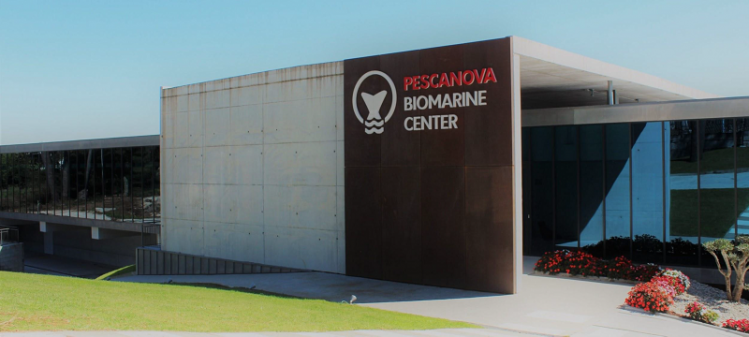
Eurogroup for Animals claimed this would be an “inappropriate usage of EU public funding that is meant to drive sustainable development”. The EU did not respond to requests to comment.
Pescanova added that its aquaculture project fully complies with the guidelines issued by the European Commission for a balanced convergence between the growth of the aquaculture sector and the green transition. “This project will strengthen knowledge in the specific field of zootechnics, nutrition, animal welfare and genetics of the common octopus under farming conditions,” it stressed.
But it is wrong for this to be framed as a conservation measure, countered Hameleers. “Driving demand for more fishmeal and fish oil from already overfished seas is highly unsustainable as are the electricity demands of continually pumping water through this farm,” she told us. “We also need to be very wary of greenwashing from these large companies. To date, aquaculture has not provided us with simple solutions to prevent animals from being overfished and rarely eases any pressure on wild populations of the species being farmed.
“In terms of patterns of consumption, not just for octopus products but more generally, our planet will require us to move toward a more sustainable food system. The development of this farm goes in the opposite direction. If octopuses are not farmed, they will likely remain a delicacy in the parts of the world where we have recently seen the most growth, such as in the USA. In other words, as it is not a matter of food security. Affluent communities will likely continue to pay a premium price to consume octopuses at high-end restaurants due to the more limited resources available.”
Given their ‘solitary and inquisitive nature and fragile bodies, coupled with the lack of a humane method of slaughter’, it would not be possible to farm octopuses humanely, added the campaigner. “What’s more, because they are carnivorous animals, they would need to be fed fishmeal, a practice that is already unsustainable to wild fish populations and creates food security issues in vulnerable communities around the world.”
In response to this claim, Nueva said it is researching the substitution of raw materials of animal origin for others of vegetable origin, such as the use of spirulina, and intends to further optimise feed sustainability.
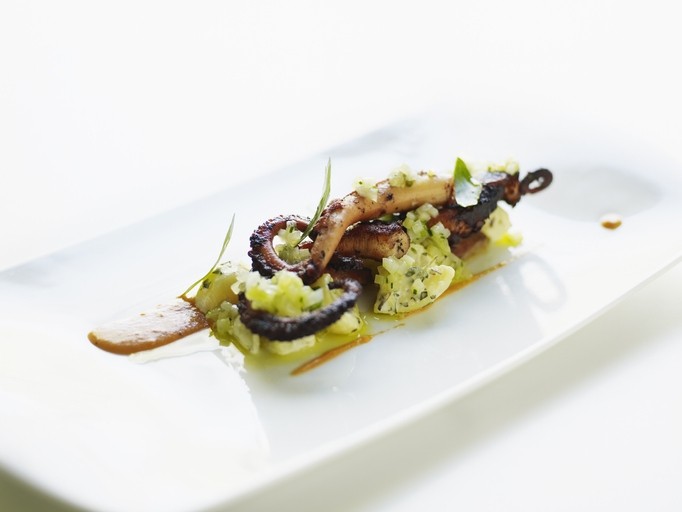
There are attempts to establish similar octopus farms in other parts of the world
Nueva Pescanova currently has a presence in 17 countries on five continents. It sells seafood products in more than 80 countries globally. It already currently markets a range of octopus products for the large distribution chains in Spain, Italy and Greece. The octopus produced at the proposed farm will be sold on premium international markets in Japan and the US. It also plans to sell the farmed octopus in South Korea and in Southern European countries where it is already present.
It's not yet known if and when Nueva Pescanova’s farm will begin operations. The company hopes to have a 52,000sq.m facility generating 300 jobs producing 3,000 tons of octopus and rearing more than a million octopuses per year from 2023.
There are several permissions required first, including the public port domain concession, authorisation for discharges made from land into the sea, the maritime-land domain concession, and finally the aquaculture activity licence. These permissions are currently held up by the Environmental Impact Assessment decision, which could come at any time. If the EIA is favourable, the other permit processes will then resume. The final decision to come will be related to the aquaculture activity licence. This decision will be made by the Canary Islands Government, specifically the General Directorate of Fishing of the Ministry of Agriculture, Livestock, Fishing and Water.
If approved, the farm would be the world’s first industrial octopus farm. There are attempts to establish similar octopus farms in other parts of the world such as Mexico and Japan. In February, Washington State in the US signalled a move toward banning octopus farming, which would be the first of its kind. This followed the recent closure of the only active octopus farm in the US, the “Kanaloa Octopus Farm” based in Hawaii, in response to Compassion in World Farming’s campaign.
This is a debate that will persist.
